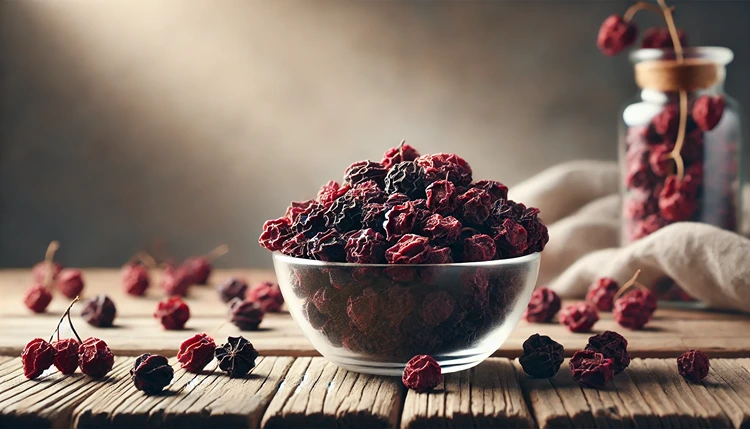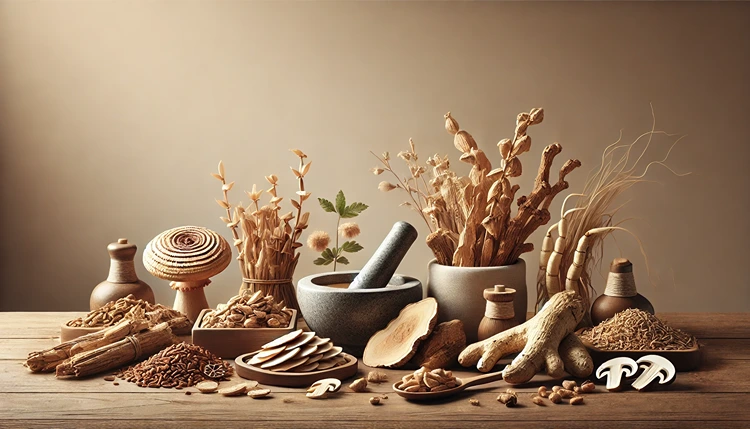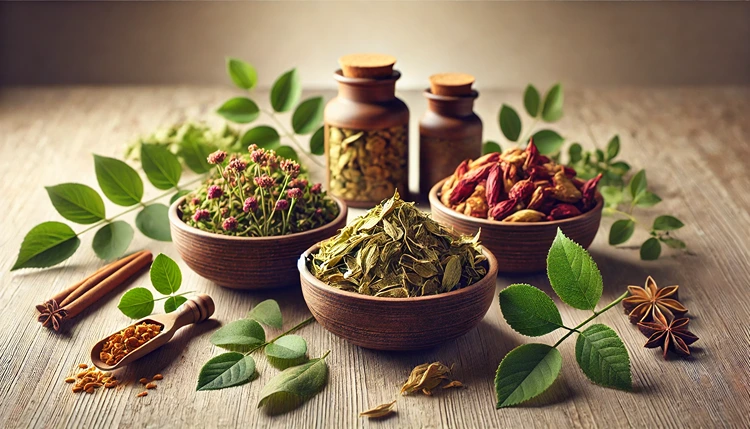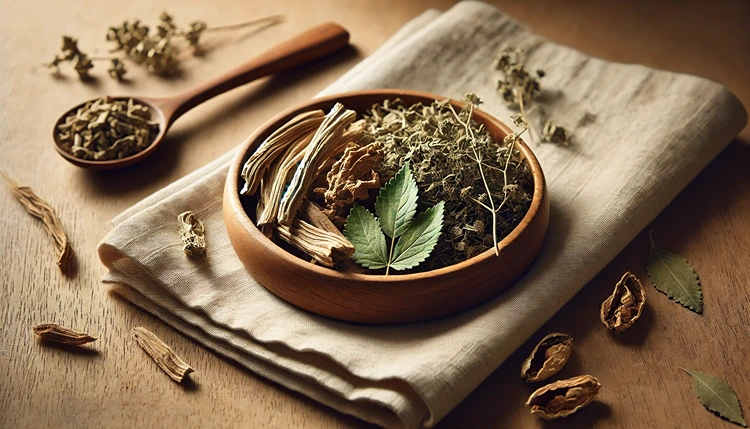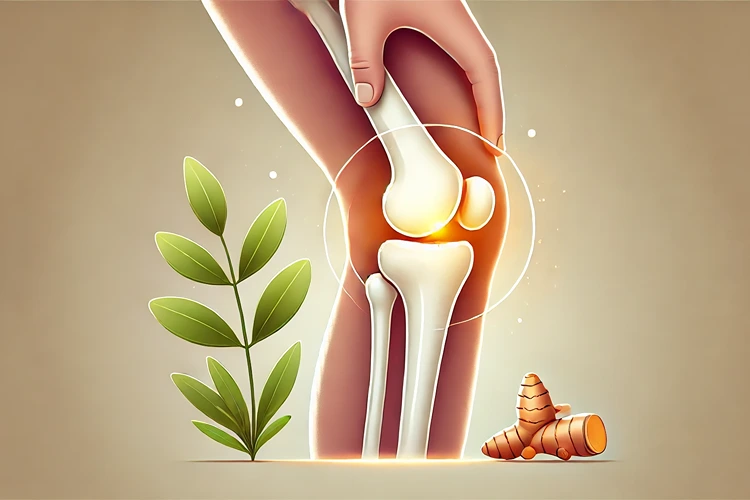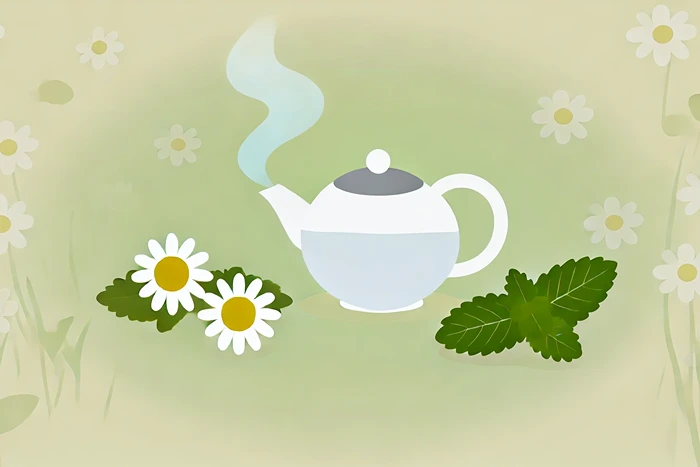
Licorice Root for Adrenal Health and Hormonal Balance in Women
Licorice root has long been used in traditional medicine to support various aspects of health, particularly in women. It’s a powerful herbal remedy that has gained attention for its potential benefits in maintaining adrenal health and hormonal balance. If you’re curious about how this ancient herb can help with stress management and overall wellness, you’re not alone.
One of the main reasons licorice root is beneficial for women is its adaptogenic properties. Adaptogens are substances that help the body adapt to stress. This is especially relevant for women dealing with adrenal fatigue or hormonal imbalances, which are often stress-related. But what is it about licorice root that makes it so special for adrenal and hormonal health? Let’s explore.
Helpful Hint:
Licorice root can sometimes raise blood pressure if taken in large quantities. If you’re considering adding it to your routine, be mindful of dosage, especially if you have high blood pressure.
How Licorice Root Affects the Adrenal Glands
The adrenal glands play a crucial role in how our bodies handle stress. When stress levels are high, these small glands located above the kidneys produce hormones like cortisol. However, when the adrenal glands are overworked, a condition known as adrenal fatigue can occur. Licorice root can support adrenal health by helping the body maintain proper cortisol levels.
Licorice contains compounds that inhibit the breakdown of cortisol, allowing the body to use it more efficiently. This can be especially helpful for women who experience chronic stress or adrenal fatigue, as it gives the adrenals a much-needed break. In addition to supporting the adrenals, licorice root has been shown to regulate blood sugar levels, another factor in adrenal health.
Can Licorice Root Help with Stress-Related Hormonal Imbalance?
Yes, licorice root may help balance hormones, especially those impacted by stress. When the adrenal glands are overworked, they can disrupt the production of other hormones, leading to imbalances. This can affect everything from your menstrual cycle to energy levels. By supporting adrenal health, licorice root helps maintain a better hormonal balance, especially for women who experience irregular periods or hormonal swings due to stress.
Licorice Root Benefits for Adrenal Health and Hormonal Balance
| Benefit | How It Works | Recommended Dosage |
|---|---|---|
| Supports Cortisol Regulation | Inhibits the breakdown of cortisol, allowing the body to use it more effectively, which helps balance stress levels. | 150-300mg daily, depending on concentration |
| Balances Estrogen Levels | Phytoestrogens in licorice root mimic estrogen, helping with symptoms of low estrogen, like those during menopause. | Up to 2-4 grams of dried licorice root per day, or as tea |
| Improves Adrenal Function | By reducing stress on the adrenal glands, licorice root can support overall adrenal health, improving energy and mood. | 500-1000mg of licorice root extract daily |
| Helps Alleviate PMS Symptoms | Licorice root helps reduce bloating, mood swings, and fatigue by balancing hormone levels and supporting adrenal function. | Tea made with 1-2 grams of licorice root, taken twice a day |
How Does Licorice Root Impact Estrogen and Progesterone Levels?
Estrogen and progesterone are the primary hormones that regulate a woman’s menstrual cycle and reproductive health. An imbalance in these hormones can lead to various issues such as irregular periods, PMS, or even infertility. Licorice root has been found to have phytoestrogenic properties, meaning it can mimic the effects of estrogen in the body.
While this might sound concerning, the phytoestrogens in licorice are much weaker than the body’s natural estrogen. In cases of estrogen deficiency, such as during menopause, licorice root can help alleviate symptoms by providing a gentle estrogen-like effect. On the flip side, in cases of estrogen dominance, licorice root can support hormonal balance by helping the liver metabolize excess estrogen.
Can Licorice Root Support Menopause Symptoms?
Yes, licorice root can be an ally for women going through menopause. It not only helps to regulate cortisol but also provides relief from some of the most common menopause symptoms like hot flashes, mood swings, and fatigue. The phytoestrogens in licorice root may help ease these symptoms by gently balancing the body’s hormones during this transitional phase.
Stats:
A study published in the Journal of Alternative and Complementary Medicine showed that licorice root significantly reduced hot flashes in 80% of menopausal women over a 12-week period.
Is Licorice Root Safe for Long-Term Use?
While licorice root can offer great benefits, it’s essential to use it wisely. High doses of licorice root can lead to side effects like high blood pressure, headaches, and potassium loss. For women looking to use licorice root as part of their adrenal and hormonal health regimen, moderation is key.
If you’re planning to take licorice root for more than a few weeks, consider consulting a healthcare provider. Licorice supplements often come in a “deglycyrrhizinated” form, which removes glycyrrhizin—a compound that can raise blood pressure. This form may be safer for long-term use while still providing many of the benefits.
Helpful Hint:
If you’re using licorice root for hormonal balance, try incorporating it into a tea. Licorice root tea is a soothing way to enjoy its benefits, especially when combined with other hormone-supportive herbs like nettle and red raspberry leaf.
How to Incorporate Licorice Root into Your Wellness Routine
Incorporating licorice root into your daily routine doesn’t have to be complicated. You can find licorice root in various forms, including teas, tinctures, capsules, and powders. The most common and accessible way is through tea, which can be both calming and effective.
For adrenal support, consider starting with a low dose and gradually increasing it based on how your body reacts. Many women prefer to take licorice root in the morning as it can provide a natural energy boost by supporting cortisol levels. However, if you’re dealing with hormonal imbalances, you may want to combine licorice root with other herbs to get the full spectrum of benefits.
Should You Take Licorice Root with Other Herbs?
Yes! Licorice root works synergistically with other herbs, especially those that support hormonal balance. Herbs like ashwagandha and maca can be great companions, particularly for women dealing with both adrenal fatigue and hormonal issues. Combining these adaptogenic herbs can enhance your body’s ability to cope with stress and restore hormonal equilibrium.
Licorice Root and Adrenal Fatigue: What You Need to Know
Adrenal fatigue occurs when your adrenal glands are unable to keep up with the body’s constant demand for cortisol due to chronic stress. This can lead to symptoms such as fatigue, brain fog, sleep disturbances, and mood swings. While adrenal fatigue isn’t a condition recognized by all healthcare professionals, many women experience these symptoms and are often left searching for answers.
Licorice root may offer support for women dealing with adrenal fatigue. Its ability to extend the half-life of cortisol allows your body to use this important hormone more efficiently, potentially reducing the burden on the adrenal glands. By supporting the natural function of the adrenals, licorice root helps restore balance and reduce the chronic stress response that contributes to adrenal fatigue.
Can Licorice Root Help Improve Energy Levels?
Yes! One of the most noticeable effects of adrenal fatigue is a lack of energy. Women often feel exhausted throughout the day, despite getting what seems like adequate sleep. Licorice root helps regulate cortisol levels, which in turn can help stabilize energy. When cortisol is balanced, energy levels become more consistent, making it easier to get through the day without relying on caffeine or sugar for quick boosts.
Stats:
According to a survey by the American Institute of Stress, about 33% of people report feeling extreme stress, and more than 75% experience stress that affects their physical health. This chronic stress can lead to adrenal fatigue, where licorice root might be beneficial.
How Licorice Root Interacts with the Endocrine System
The endocrine system is a collection of glands that produce hormones to regulate essential bodily functions. Hormones control everything from metabolism to reproduction, and when they’re out of balance, it can wreak havoc on your health. Licorice root has an interesting relationship with the endocrine system because it interacts with several hormones, including cortisol, estrogen, and aldosterone.
How Does Licorice Root Affect Cortisol Levels?
Licorice root is known for its ability to help maintain healthy cortisol levels. It works by inhibiting the enzyme 11β-hydroxysteroid dehydrogenase, which normally breaks down cortisol. By slowing this process, licorice root extends the effects of cortisol in the body, making it easier for the adrenal glands to function without constantly being overworked.
For women dealing with chronic stress or adrenal fatigue, this is particularly important. Cortisol is often referred to as the “stress hormone,” and while it’s necessary for survival, too much or too little can lead to significant health issues. By helping to maintain appropriate levels of cortisol, licorice root plays a key role in supporting adrenal health and hormone balance.
Does Licorice Root Impact Other Hormones Like Aldosterone?
Yes, licorice root also affects aldosterone, a hormone that helps regulate sodium and potassium levels in the body. By increasing aldosterone activity, licorice root can help with electrolyte balance, which is crucial for overall health. This interaction is one reason why licorice root should be used carefully, as too much aldosterone activity can lead to high blood pressure or low potassium levels.
For women experiencing hormonal imbalances related to adrenal fatigue, licorice root’s effects on aldosterone can be beneficial. It helps maintain healthy blood pressure and fluid balance, both of which can become disrupted during periods of chronic stress.
Licorice Root and PMS: Can It Help with Symptoms?
Premenstrual syndrome (PMS) is something many women deal with regularly, and it can bring a host of uncomfortable symptoms like bloating, mood swings, and fatigue. Hormonal imbalances, particularly fluctuations in estrogen and progesterone, often drive these symptoms. So, can licorice root help alleviate some of the discomfort?
Licorice root’s phytoestrogenic properties make it a valuable herb for women dealing with PMS. By mimicking the effects of estrogen, licorice root can help balance hormonal fluctuations and reduce PMS-related symptoms. Additionally, because it supports adrenal health and stress management, it can indirectly alleviate some of the fatigue and mood changes often associated with PMS.
How Can Licorice Root Help with Mood Swings?
Licorice root may also help stabilize mood swings by supporting the adrenal glands. When cortisol levels are balanced, you’re less likely to experience the emotional highs and lows often associated with PMS or chronic stress. By addressing both the hormonal and stress-related aspects of PMS, licorice root can offer more well-rounded relief for women.
Helpful Hint:
If you suffer from PMS, consider pairing licorice root with other hormone-balancing herbs like chasteberry or evening primrose oil. These combinations can work together to provide better symptom relief by targeting multiple aspects of hormonal health.
Does Licorice Root Have Side Effects? What You Should Know
Although licorice root has many health benefits, it’s essential to be aware of potential side effects, especially when used in high doses or for extended periods. The glycyrrhizin compound in licorice root can raise blood pressure, cause water retention, and lead to low potassium levels. For this reason, individuals with high blood pressure or kidney issues should avoid large doses of licorice root.
If you’re using licorice root for adrenal or hormonal health, consider using the deglycyrrhizinated (DGL) form, which removes glycyrrhizin but still offers many of the herb’s benefits. DGL licorice is often recommended for those with high blood pressure, as it minimizes the risk of side effects.
What Are the Common Side Effects of Licorice Root?
- High blood pressure
- Headaches
- Water retention
- Fatigue from potassium depletion
To avoid these issues, it’s best to use licorice root in moderation and under the guidance of a healthcare provider, especially if you’re planning to use it long-term.
FAQs
Wrapping Up
Licorice root offers significant potential for supporting adrenal health and hormonal balance in women. Whether you’re dealing with stress-related adrenal fatigue or struggling with hormonal fluctuations, this ancient herb may provide a natural solution. From its ability to regulate cortisol levels to its phytoestrogenic properties, licorice root has something to offer women at various stages of life, from menstruation to menopause. While it’s essential to use licorice root carefully and consult a healthcare professional, it can be a valuable part of a wellness routine.


